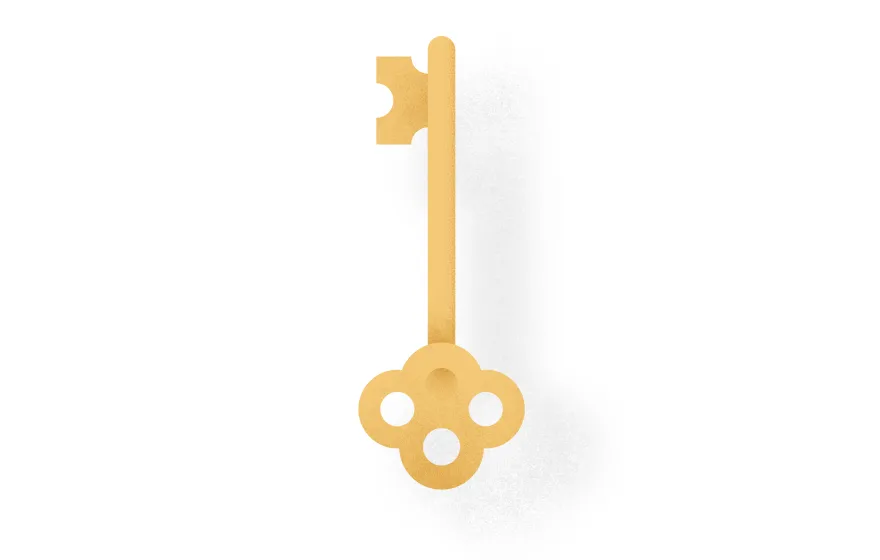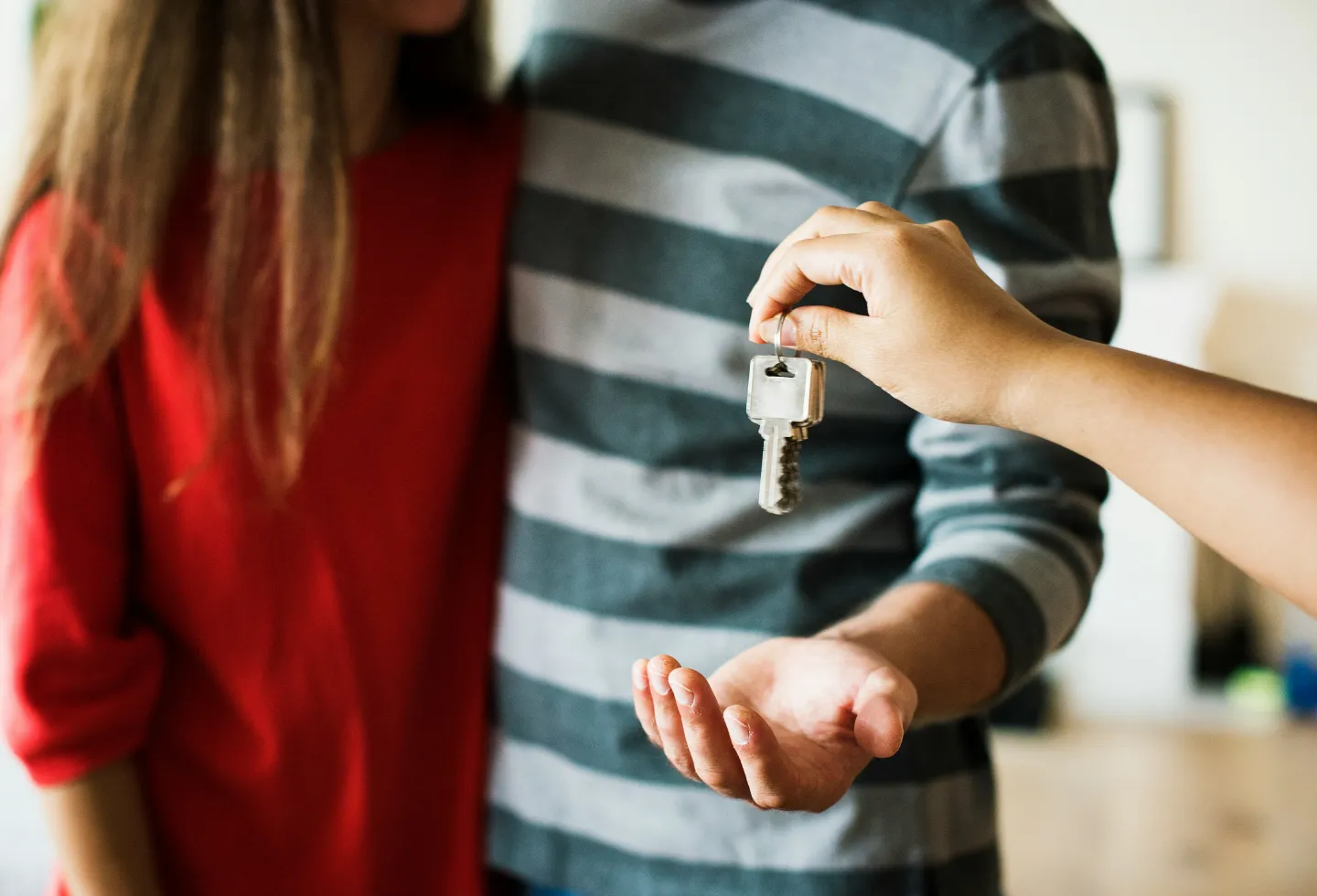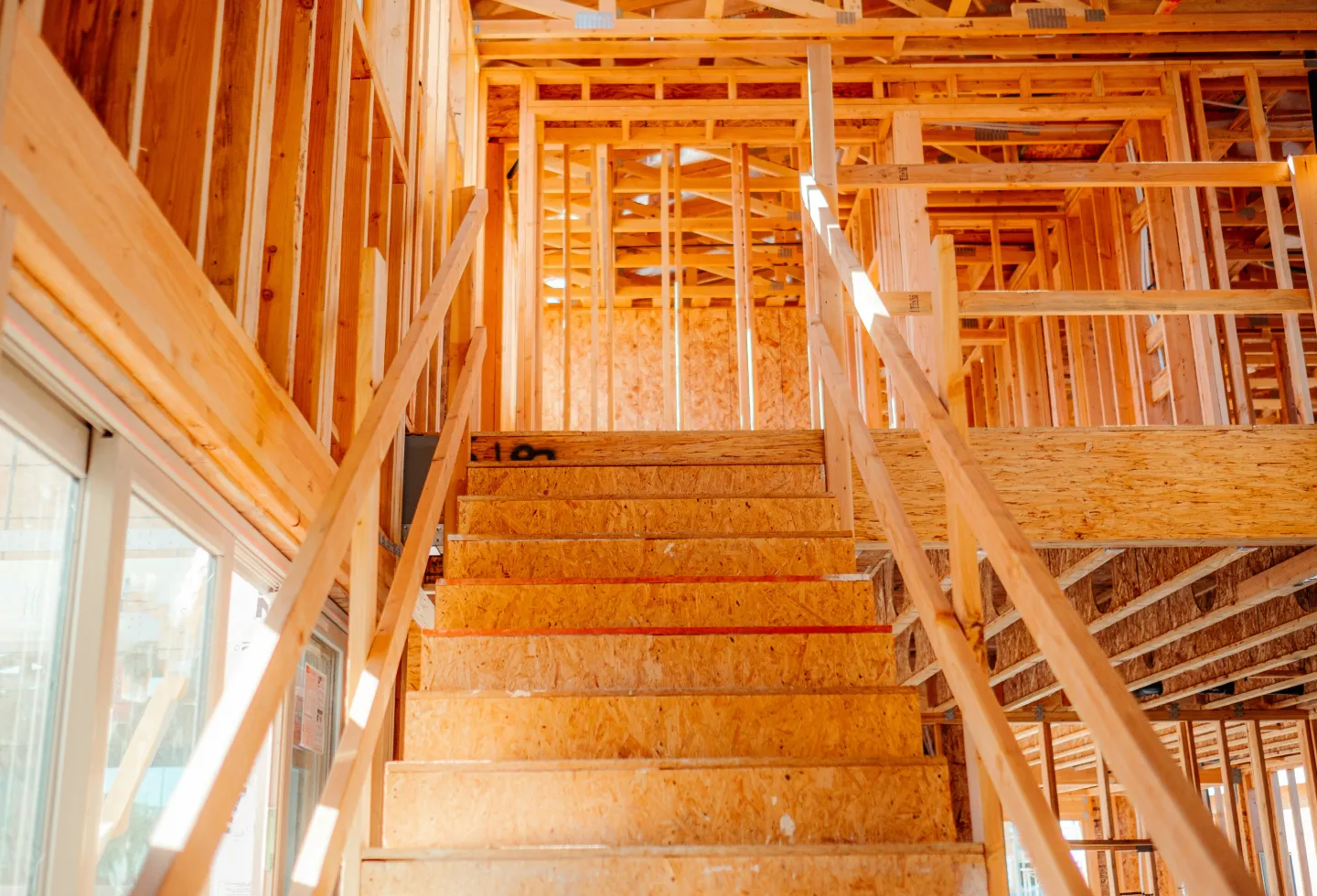If you're like most people, owning a home is likely a goal on your horizon. While high property prices can make saving for a house feel challenging, there are ways to get closer to homeownership without waiting decades.
You might be wondering if there’s a path to buying a home with little to no money upfront. We'll discuss available no-money-down and low-money-down financing options and offer tips to make buying a home more affordable. That way, you can move into your dream house sooner rather than later.
Can I buy a house with no money down?
You may be able to buy a house with no money down if you can qualify for a zero-down mortgage. With a zero-down mortgage, you borrow 100% of the property's sale price.
Types of zero-down mortgages
There are two main types of zero-down, or no-money-down mortgages, the VA loan and the USDA loan. Both loans are government-backed, so lenders assume less risk and are therefore more comfortable loaning money without a down payment.
VA loans
A VA loan is a special benefit for veterans, active-duty service members, and certain members of the National Guard or Reserves. With no down payment and no private mortgage insurance (PMI) required, it can make buying a home far more affordable.
To get started, you’ll need a Certificate of Eligibility (COE) and meet your lender’s credit and income guidelines. While VA loans typically offer lower interest rates, there is a funding fee to keep in mind—though some borrowers may be exempt. For many who’ve served, this program is one of the simplest and most cost-effective ways to become a homeowner.
USDA loans
USDA loans help people buy homes in eligible rural and suburban areas. Like VA loans, they don’t require a down payment and have lower interest rates compared to conventional mortgages. To qualify, your household income will need to fall within certain limits, and the home you want will need to be located in a USDA-approved area. One important consideration: USDA loans require you to use the home as your primary residence, so they’re not an option for investment or vacation properties.

Should you get a no-money-down mortgage?
Getting a home loan without making a down payment may seem like a smart move. And in many ways, it can be. Some of the advantages include:
- You can become a homeowner sooner without waiting years to save for a down payment.
- You get to keep more of your savings for moving costs, home repairs, or emergencies.
- Some programs offer competitive interest rates and reduced closing costs.
- Zero-down options can make homeownership possible for buyers who may otherwise struggle to qualify.
But, while doing so can help you buy a house sooner, there are some downsides, such as:
- You'll borrow more, which means a higher debt obligation to repay and a higher monthly payment.
- You'll have little to no equity for quite a while, so you won't be able to tap into it if needed, and there's a risk of becoming upside down on your mortgage if property values drop.
- You may have to pay a higher interest rate compared to a mortgage that requires a down payment, which would increase your long-term cost to borrow.
- You may have to pay other fees specific to the mortgage program, such as the VA loan's funding fee.
It's a good idea to do the math to see what a no-money-down mortgage could cost you in the long run – especially if you plan to live in the home for many years.
Low-money-down home loan options
If you don't qualify for a VA or USDA mortgage, or you want to put a little money down, here are some options to consider:
FHA loan
An FHA loan is a government-backed mortgage overseen by the Federal Housing Administration. Popular with first-time homebuyers, but open to anyone, FHA loans typically require a 3.5% down payment. If your credit score is under 580, you'll need to put down 10%.
Conventional mortgage
A conventional mortgage is any home loan that the government doesn't back. In the past, the general rule of thumb was that you needed to put down 20% when buying a house. Now, some lenders will issue mortgages with just a 3% down payment.
HomeReady® mortgage from Fannie Mae or Home Possible® mortgage from Freddie Mac
These conventional home loan programs also allow down payments as low as 3%. You typically need good credit and may be required to complete a homebuyer education course to qualify.
An important note about low-money-down mortgages
While you may not need to put 20% down anymore, a smaller down payment has financial consequences. Similar to no-money-down mortgages, low-money-down mortgages result in more debt, higher monthly payments, and potentially higher interest rates.
On top of that, in many cases, you'll have to pay for mortgage insurance until you reach 20% equity in your home, increasing your monthly housing expense. Mortgage insurance doesn't protect you. It protects your lender if you default on your loan.
If you have an FHA loan, you'll have to pay an upfront mortgage insurance premium. Then, you'll likely have to pay an ongoing mortgage insurance premium for the life of the mortgage, regardless of how much equity you build.
Other ways to afford a home sooner
If you're willing to get creative, you can save up a down payment in less time or reduce what you need to bring to the closing table. Here are several ideas that might work for you:
Collect monetary gifts from loved ones
Your family and friends may be willing and able to pitch in toward your homebuying fund. It's worth asking around because even small amounts eventually add up.
Research downpayment assistance programs
Check with your state housing authority to learn about downpayment assistance programs available near you. You may be eligible for a low-cost loan or a grant you don't have to repay. Some homebuyer assistance programs may also help cover closing costs.
Ask about lender credits
Your lender may offer lender credits, which lower your upfront costs in exchange for a higher interest rate. Be sure to understand what a higher rate would mean for your monthly payment and overall borrowing cost before committing.
Note: Some lenders may also offer grants designed to help make homeownership more accessible. It doesn't hurt to inquire!
Ask about seller concessions
If your seller is motivated to close the deal, they may be willing to cover some of your closing costs. You would then have more money available to use as a down payment or bolster your emergency fund.
Note: If your seller has a lot of interest in their home, they'll be less likely to agree to concessions because they can find a buyer who doesn't need them.
Use equity in an existing property
If you already have at least 20% equity in another property, you may be able to borrow from it to cover your down payment via a home equity loan, line of credit, or investment.
- Home equity loan: Single lump sum payment in exchange for fixed monthly payments over a 5 to 30-year term.
- Home equity line of credit (HELOC): Revolving line of credit with a 5 to 10-year draw period and interest-only payments. Then, during the 10- to 20-year repayment phase, principal-plus-interest monthly payments are made.
- Home equity investment (HEI): Single lump sum payout in exchange for a share of your home’s future appreciation. No monthly payments, no income requirements. You settle the investment anytime during a flexible 30-year term when you sell, refinance, or use another source of funds.
It’s important to keep in mind that you'll have to pay closing costs and could face foreclosure if you default.
Take a 401(k) hardship withdrawal
If your employer's plan permits it, you may be able to take a hardship withdrawal from your 401(k) to cover your down payment, closing costs, and other homebuying-related expenses. However, taking money out of that account is stealing from your future if you can’t make catch-up contributions. So be sure to consult a financial advisor before pulling from your retirement account.
The cash you withdraw will no longer earn compound interest. Plus, you'll have to pay income tax and a 10% early withdrawal penalty if you're under age 59.5.
Frequently asked questions
What credit score do you need to buy a house with no money down?
The VA and USDA don't have set credit score requirements you need to meet to qualify, but your lender does. Generally, the higher your credit score, the better; however, most lenders require a score of at least 620.
Can I buy a house if I don't have money saved?
While down payment and closing cost assistance may be available, you generally need to bring some cash to the table on closing day. Additionally, lenders prefer to see that you have reserves in the bank, in case your home requires maintenance or you lose your job. Plus, you'll feel more secure knowing that you haven't spent every last dime you have to buy your new home.
What is the minimum income to qualify for a home loan?
There isn't a set amount you need to earn to qualify for a mortgage. Instead, your lender will verify that your income is sufficient to cover your existing debt and new home loan comfortably.

Final thoughts
Saving up to purchase a home is no easy (or quick) feat, so it may leave you wondering, "Can I buy a house with no money down?" While the answer to that question is "maybe," it immediately prompts another question: Should you buy a house with no money down?
That answer is more complicated. Sure, it would be nice to get into your new property for less money upfront, but doing so comes at a price you'll pay over time. Be sure it's worth it.
No income? No problem. Get a home equity solution that works for more people.
Prequalify in 60 seconds with no need for perfect credit.
Show me my offer
Frequently asked questions
.png)
Thank you for subscribing!
.webp)















